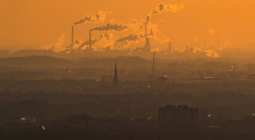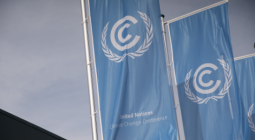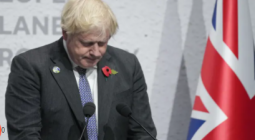We’re in uncharted territory for the world’s climate, UN says
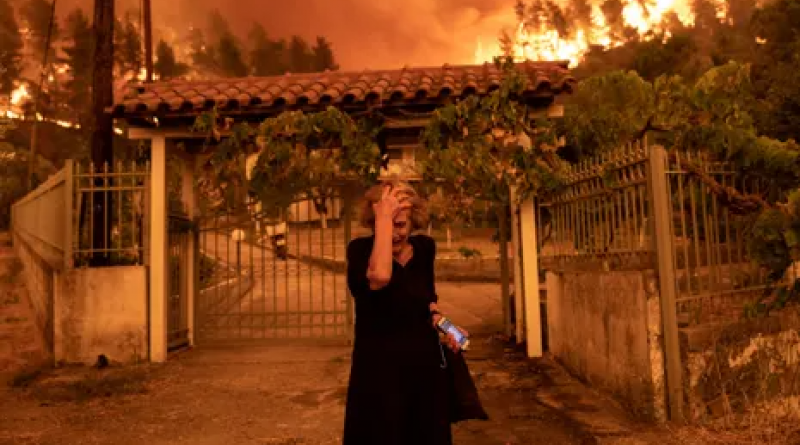
Report sets out heatwaves, wildfires, droughts and floods that have wreaked havoc this year
The climate crisis has driven the planet into “uncharted territory”, with far-reaching repercussions for today’s and future generations, according to the UN World Meteorological Organization. It said the Cop26 summit was a “make-or-break opportunity to put us back on track”.
The WMO’s State of the Global Climate report shows that the last seven years have been the hottest seven years on record, and that accelerating sea level rise hit new heights in 2021. It also sets out the heatwaves, wildfires, droughts and floods that have wreaked havoc across the planet this year and is intended to inform Cop26 negotiations.
“The report shows our planet is changing before our eyes,” said the UN secretary general, António Guterres. “From the ocean depths to mountain tops, from melting glaciers to relentless extreme weather events, communities and ecosystems around the globe are being devastated. Cop26 must be a turning point for people and planet.
“Scientists are clear on the facts,” he said. “Now leaders need to be just as clear in their actions. The door is open; the solutions are there. We must act now, with ambition and solidarity, to safeguard our future and save humanity.”
“Extreme events are the new norm,” said Prof Petteri Taalas, the WMO secretary general. “Cop26 is a make-or-break opportunity to put us back on track.”
Taalas set out the climate impacts. “It rained rather than snowed for the first time on record at the peak of the Greenland ice sheet. A heatwave in Canada and parts of the US pushed temperatures to nearly 50C in a village in British Columbia. The exceptional heat was often accompanied by devastating fires,” he said.
“Months’ worth of rainfall fell in the space of hours in China and parts of Europe saw severe flooding, leading to dozens of casualties and billions in economic losses. A second year of drought in sub-tropical South America reduced the flow of mighty river basins and hit agriculture, transport and energy production.”
On Monday, 120 global leaders will arrive at Cop26 in Glasgow after a battery of reports were released that spell out the grave danger the world is in. The Intergovernmental Panel on Climate Change’s report was a “code red” warning, according to Guterres, and found that global heating was unequivocally caused by human activities and affected every part of the planet.
UN reports have also found that the action plans of the world’s nations so far leave the planet facing a catastrophic 2.7C of heating. Emissions are on track to be 16% higher in 2030 rather than 45% lower, which is the cut that science shows is required to keep below 1.5C and avoid the worst consequences. Planned production by the world’s governments of fossil fuels, the key cause of the climate emergency, “vastly exceeds” the limit for 1.5C.
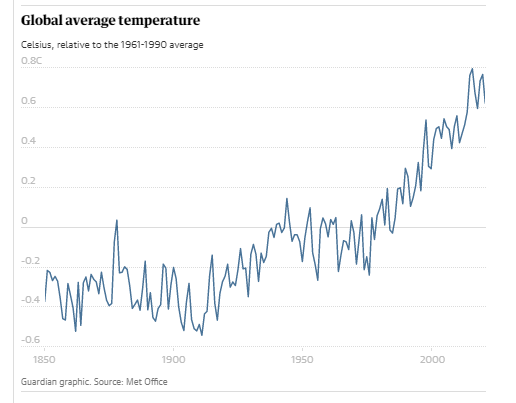
The WMO report shows that the rise in the world’s average temperature has exceeded the landmark figure of 1.0C above pre-industrial levels over the past two decades, the first time that a 20-year period has surpassed this threshold since records began in 1850.
“This fact will focus the minds of delegates at Cop26 aspiring to keep within the limits agreed in Paris six years ago,” said Prof Stephen Belcher, the UK Met Office chief scientist. The report said 2021 would not be the single hottest year on record, because of a natural climate phenomenon called La Niña, which is temporary.
A WMO report published last week showed that the levels of climate-heating gases in the atmosphere hit record levels in 2020, despite coronavirus-related lockdowns.
More than 90% of the heat trapped by greenhouse gases is soaked up by the oceans, and the new WMO report said seven global datasets project new record sea temperatures this year. The oceans also absorb about a quarter of humanity’s carbon emissions, which has pushed the seas to their most acidic in at least 26,000 years.
It said the average sea level rise was 2.1mm a year from 1993 to 2002, but 4.4mm a year from 2013 to 2021, mostly the result of accelerating loss of ice from glaciers and ice sheets. Prof Jonathan Bamber at Bristol University’s glaciology centre said: “If we continue on our current trajectory, that rise could exceed 2m by 2100 and displace some 630 million people worldwide. The consequences of that are unimaginable.”
An exceptionally hot and dry summer in 2021 in western North America took a “brutal toll” on the region’s mountain glaciers, the WMO said. Prof Andrew Shepherd at the University of Leeds said: “2021 is now the 30th consecutive year in which Antarctica and Greenland have together lost ice, and there is no sign of this abating. It’s a shocking record.”
The report also recorded extreme temperature records in 2021. The 54.4C recorded in Death Valley, in the US, in July is the highest in the world since at least the 1930s, while the 48.8C in Sicily, Italy, in August is a provisional European record. Many regions in North America and Europe suffered major wildfires.
The Pacific north-west heatwave “would have been virtually impossible without climate change”, scientists found, and the flooding in western Europe was made up to nine times more likely by the climate crisis.
Prof Hannah Cloke at the University of Reading said: “I only hope that at Cop26, the facts [in the WMO report], which summarise the fates of millions of people, are foremost in the minds of the world’s political leaders.”
31 October 2021
The Guardian

